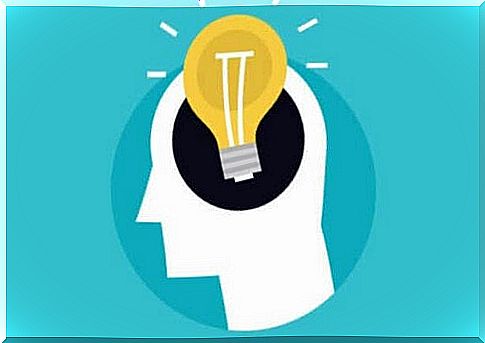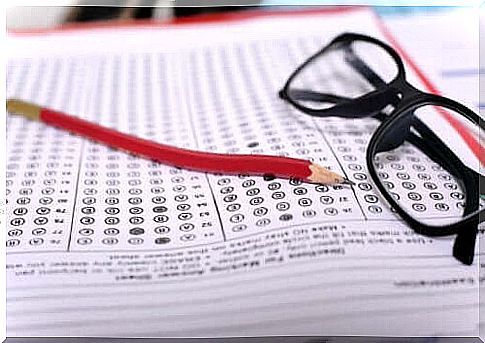What Really Makes A Person Smart?

Intelligence is a common field in psychology. In fact, history and developments have inspired much of the methodology of this subject. Perhaps the main problem in the study of intelligence lies in the measurement. In other words , it is impossible to determine if a person is smart or not when you do not know what makes them smart to begin with.
There are many definitions of intelligence. A quick web search will actually give you many results on it, some of which are quite different and a little scary.
For some it is the art of solving problems while for others it is the art of producing them. Then there are those for whom it represents the art of making decisions. In any case, this “art” is somehow a reminder that empty intelligence without productivity has little value and does not make sense, at least for others.
Keep reading to find some answers about what makes a person smart.
Was Einstein smarter than Mozart?
This question somehow confronts music lovers with physics lovers. Why? Because it at least gives doubt allows the creative types to benefit, whose work is either pleasant or tragic. This is because there is usually some pain or strain in most people’s understanding of a genius.
Similarly, many argue that one should approach the concept of intelligence from a social perspective. That is, from your need to relate to and the benefits you can achieve for yourself, in a close environment or society in general
For example, if you are going to study primates, you will gain knowledge about their complex social environment. They often cheat and also perform behaviors that can be described as altruism. There is even an open debate about whether they have a “mentalization”. A sense of self as a unique individual distinct from others in the group (Gallup, 1982; Hauser, MacNeilage & Ware, 1996).
The intellectual capacity of a person who is smart
Intelligence is directly linked to intellectual capacity. It is about being able to learn, remember and use new information to solve problems and adapt to new situations. There are some famous names like Charles Spearman or Francis Galton at the beginning of the study that we mentioned above.
However, Binet stands out because the context in which he developed his work was instructive. His interest in studying intelligence was also about improving the education system. He wanted to know if there was a way to intervene in children with learning disabilities.
Together with colleague Theodore Simon, Binet designed a test to try to measure children’s intellectual abilities. To do this, they created individual test elements that the children could answer according to age.
For example:
- A three-year-old should be able to point to his mouth and eyes.
- A nine-year-old should be able to name the months of the year in order.
- Finally, a twelve-year-old should be able to name sixty words in three minutes.
This rating was the first IQ test:

What makes a person smart?
Socrates went down in history as many things, but perhaps the most important was his design of a method of producing knowledge, Maieutics. Those who use it must be skilled at asking questions.
By pulling the same thread, science moves forward when people are able to ask important questions before they get relevant answers. Thus, perhaps the most important sign of intelligence is to be able to generate questions.
On the other hand, a person who is skilled in solving logical problems is usually considered smart. Thus, mathematics has been the preferred field for testing this due to the abstraction of cultural variables. Perhaps the most inspiring and inclusive of modern theory is Gardners.
Gardner’s theory is based on the idea that humans process information through various independent, or partially independent, “channels”. He has identified eight common types of intelligence. They include:
- Logical-mathematical
- Visual-spatial
- Musical
- Linguistic
- Physical-kinesthetic
- Social
- Self-insight
- Naturalistic
This idea is quite interesting. In fact, it led to a flow that was committed to adapting the way it presents information, individually, to enhance learning.
Concluding notes
Finally, positive psychology has expanded the answer to what makes a person intelligent by highlighting the value of emotional intelligence. This way of thinking strengthens the idea that emotions, or associated intuition go hand in hand with intelligence. In addition, it defends that a smart person is able to handle their emotions properly, listen, and choose the best way to channel their energy.









